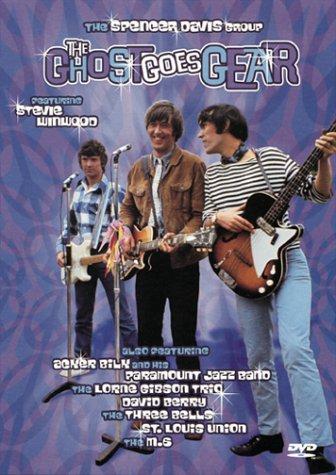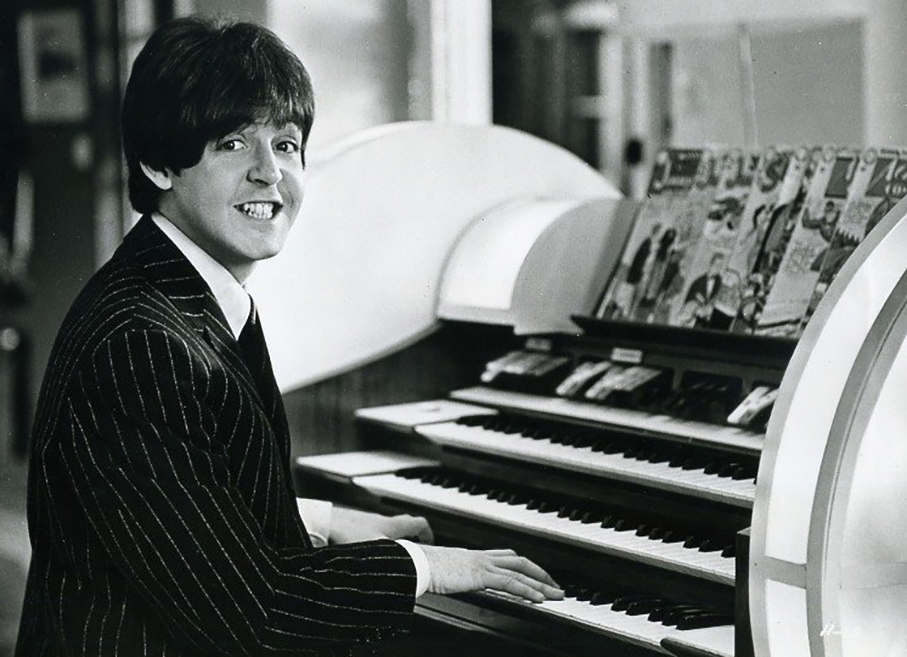By Mike Olszewski
The Kent Stage has hosted so many musical greats over the years, and for many it was our last chance to hear them do what they do best. One act that comes to mind is the Spencer Davis Group. They did two shows at the Stage with a reception in between at the art gallery down the street. At the matinee, Davis mentioned the loss of his original lead vocalist, Steve Winwood, and joked “Here’s another song that sounds just like the record!” They all still sounded terrific, but how would those songs have sounded if Winwood hadn’t left to form Traffic?

As it turns out, we do have the opportunity to relive those moments in a very unlikely place. Here’s the issue: You have to sit through another landmark of British exploitation cinema, the 1966 film The Ghost Goes Gear. That’s right, another milestone in matinee marketing aimed at draining every last pence from the pockets of English youth. But, like their American counterparts, the producers of this film inadvertently preserved some shining moments in pop music history.
The Spencer Davis Group had quite a few hits on their home soil. “Keep on Running” and “Somebody Help Me” got serious air play, but it was “I’m a Man” and “Gimme Some Lovin’” that took them to the top of the international charts powered by the thunderous pipes of the 15-year old Winwood. Producers wondered if that could transfer to the silver screen, and the vehicle they chose to test that theory was The Ghost Goes Gear. It has nothing to do with the UK’s love for automobiles. Gear, of course, was part of the street lingo that accompanied the so-called second British invasion. The producers were obviously trying to capitalize on the music and the storyline is nothing more than a weak premise linking the songs. A haunted house, and a garden party with musicians to help out the family so they don’t go broke, all in a throw away money grab that even the studio thought would soon be on a trash heap in time for the next travesty. It was never released in the U.S., and we can thank cooler heads for that. Aside from the Spencer Davis Group the cast is populated with British stars that would just be faces to American audiences. The only other really familiar name is Mr. Acker Bilk, the clarinet player best known for “Stranger on the Shore” who would have been welcomed by the audience more in tune with Lawrence Welk.

Critics were merciless when the film was released. The British Film Institute wrote in its Monthly Film Bulletin, “This musical farrago is an embarrassingly artless affair, dolled up with all kinds of camera trickery but uncomfortably reminiscent of the ‘quota quickie’.” Keep in mind that no one thought they were redoing an epic like The Sound of Music, but even the producers were shocked at the backlash. It didn’t age well either. When the film was resurrected on home video, the Mod culture website wrote it includes, “a painful final half-hour of acts that remind you that the 60s wasn’t the great musical decade the rose-colored specs might suggest.” However, it does have some redeeming qualities.

Yes, most of the performances are mimed, but it also gives us a look at the Spencer Davis Group in its prime if only for imaging. It’s also a prime example of the way youth culture was marketed overseas for quick money until it finally dawned on producers that the audience was more sophisticated than they had originally thought. It’s still worth a look but take it for what it is.
















